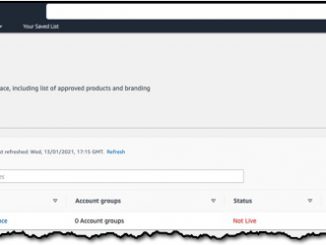
새로운 소식 – AWS Private Marketplace 다중 카탈로그 지원
새로운 소식 – AWS Private Marketplace 다중 카탈로그 지원 AWS는 2014년에 AWS Marketplace를 출시했습니다. 고객은 이를 통해 Independent Software Vendor(ISV)에서 개발한 클라우드 기반 애플리케이션을 찾아 구매하고 즉시 사용할 수 있습니다. 2018년에는 Private Marketplace를 추가하여 기능을 보강했습니다. 이 기능을 통해 AWS Marketplace에서 사용자가 구매할 수 있는 승인된 제품 목록을 엄선하여 표시할 수 있습니다. 오늘 AWS는 AWS Organizations에서 Private Marketplace의 다중 카탈로그를 생성할 수 있도록 새 기능을 추가했습니다. 각 Private Marketplace는 서로 다른 제품 세트를 포함하여 특정 계정 그룹에 맞춤화된 경험을 제공할 수 있습니다. 다양한 사용자 그룹을 보유한 고객은 비즈니스 요구 사항에 맞게 거버넌스를 확장해야 합니다. 예를 들어, 서로 다른 산업에 자회사가 있는 대기업은 각 자회사에 대해 다양한 소프트웨어 요구 사항과 정책을 보유하고 있습니다. IT 관리자는 조직 전체에서 이러한 다양한 요구 사항을 해결하기 위해 조달 프로세스를 확장하는 데 어려움을 겪고 있으며, 전체 조직을 관리하기 위해 하나의 조달 정책으로 돌아가는 경우도 종종 있습니다. [ more… ]

